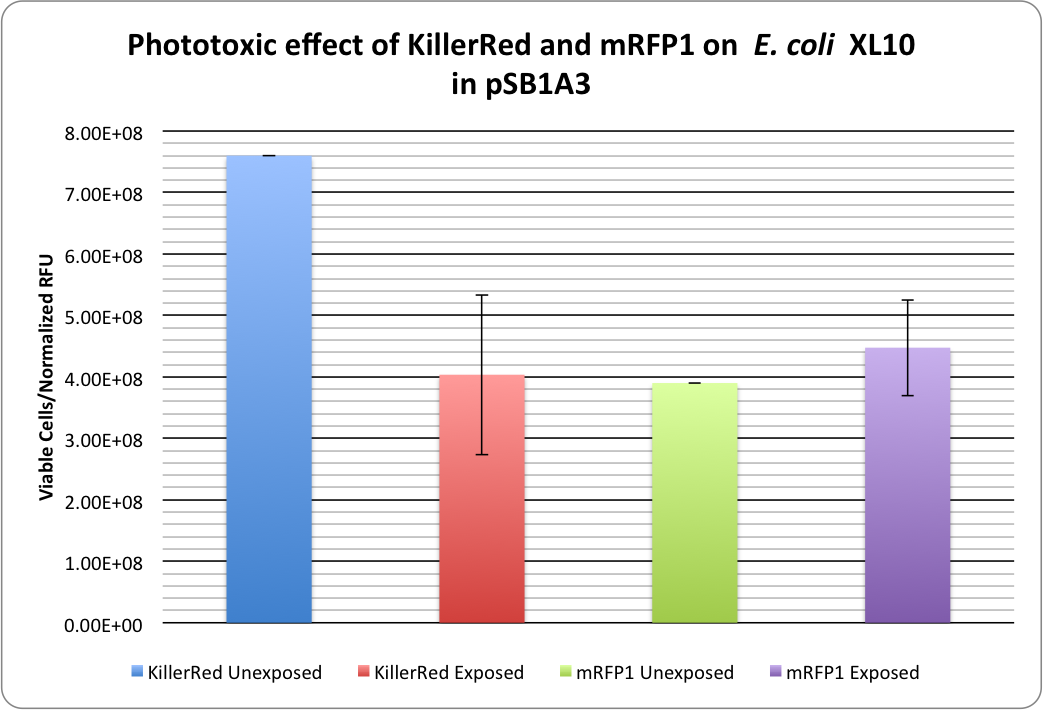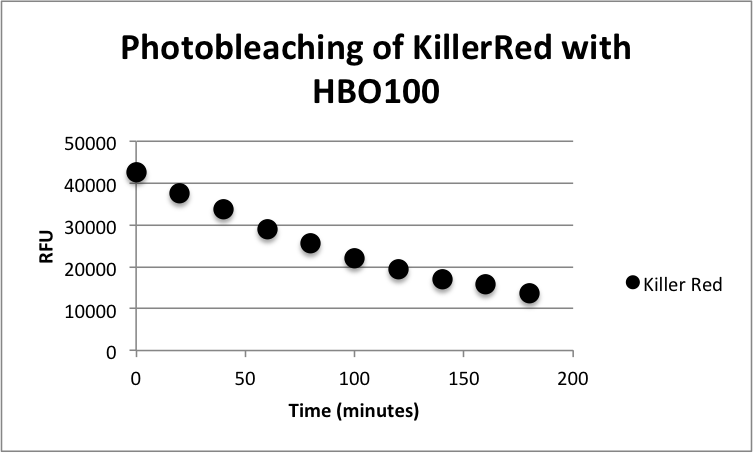Team:Carnegie Mellon/Project/Results
From 2013.igem.org
Enpederson (Talk | contribs) |
Enpederson (Talk | contribs) |
||
| Line 43: | Line 43: | ||
<tr><td align="left">180</td><td align="right">13741</td></tr> | <tr><td align="left">180</td><td align="right">13741</td></tr> | ||
</table> | </table> | ||
| - | <p> | + | <p><html> |
To read our conclusions and future directions, visit our <a href="2013.igem.org/Team:Carnegie_Mellon/Project/Abstract">Abstract</a> and <a href="https://2013.igem.org/Team:Carnegie_Mellon/Project/Future">Future Directions</a> pages. | To read our conclusions and future directions, visit our <a href="2013.igem.org/Team:Carnegie_Mellon/Project/Abstract">Abstract</a> and <a href="https://2013.igem.org/Team:Carnegie_Mellon/Project/Future">Future Directions</a> pages. | ||
| - | <br><br> | + | <br><br></html> |
Latest revision as of 03:39, 28 September 2013
KillerRed phototoxicity
Our photobleaching experiments showed the phototoxicity of KillerRed in pSB1A3:
KillerRed's phototoxic effect on E. coli XL10 is shown in Figure 1.
Triplicate cell viabilities are divided by the normalized fluorescence values to account for bleaching effects and the fact that KillerRed has a lower expression level than mRFP1.
RFP 114% ± 20% (viable cells)/(Normalized RFU)
KillerRed: 53% ± 17% (viable cells)/(Normalized RFU)
KillerRed photobleaching curve
XL10 Ultracompetent cells were transformed with KillerRed (BBa_K1184000) cloned with <partinfo>BBa_B0034</partinfo> as the RBS and <partinfo>BBa_R0010</partinfo> as the wild-type lac promoter and induced overnight with IPTG.The overnight was bleached for 180 minutes with HBO100 (100W Mercury-arc lamp). Fluorescence data was taken using a Tecan Safire II with the parameters shown in Table 1. Fluorescence Data is shown in Table 2.
| Excitation (nm) | 585 |
| Emission (nm) | 610 |
| Excitation bandwidth (nm) | 10 |
| Emission bandwidth (nm) | 10 |
| Gain | 129 |
| Number of reads | 10 |
| Integration Time (microseconds) | 40 |
| Time (minutes) | Fluorescence (RFU) |
| 0 | 42598 |
| 20 | 37616 |
| 40 | 33749 |
| 60 | 29059 |
| 80 | 25680 |
| 100 | 21985 |
| 120 | 19442 |
| 140 | 17031 |
| 160 | 15738 |
| 180 | 13741 |
To read our conclusions and future directions, visit our Abstract and Future Directions pages.
 "
"


